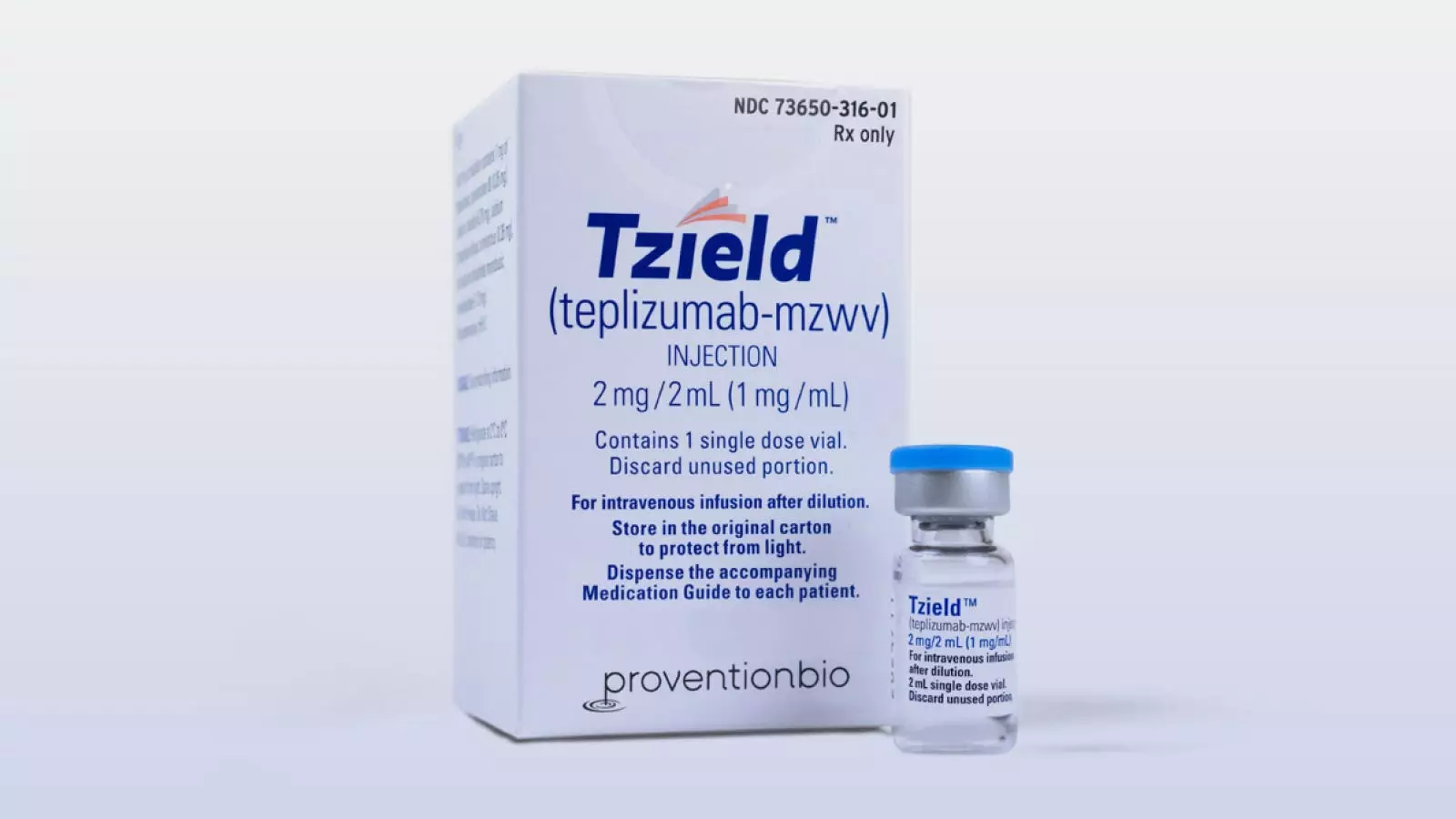The use of teplizumab (Tzield) in the treatment of type 1 diabetes (T1D) has shown promising results, according to the PROTECT trial. This randomized study demonstrated that early administration of teplizumab can help preserve beta-cell function and delay disease progression in individuals with T1D. Although the drug did not improve glucose control or reduce hypoglycemia events, it significantly reduced loss of beta-cell function compared to placebo. This article will explore the findings of the PROTECT trial and discuss the implications of teplizumab in the management of T1D.
The PROTECT trial revealed that two 12-day courses of teplizumab resulted in a 59.3% reduction in loss of beta-cell function. Participants who received teplizumab had higher stimulated C-peptide levels at week 78 compared to those who received placebo. Furthermore, almost all teplizumab recipients maintained peak C-peptide levels at or above 0.2 pmol/mL, which was significantly greater than the placebo group. These findings suggest that teplizumab plays a crucial role in preserving beta-cell function in individuals with T1D.
Despite the positive impact on beta-cell function, teplizumab did not lead to improvements in glucose control or reduction in the insulin dose requirements. The study showed no significant difference in key secondary endpoints such as glycated hemoglobin levels, time in the target glucose range, and hypoglycemic events between the teplizumab and placebo groups. These results indicate that while teplizumab can preserve beta-cell function, it may not directly affect glycemic control in individuals with T1D.
Teplizumab is an anti-CD3 antibody that works by binding to CD3 cell surface antigens on T lymphocytes. These cells are responsible for attacking insulin-producing beta-cells in individuals with T1D. Additionally, teplizumab may boost immune tolerance by inducing regulatory T-cell activity. This dual mechanism of action makes teplizumab a potential therapeutic option in the management of T1D.
Teplizumab was approved in 2022 for adults and children ages 8 years and older with preclinical T1D who want to delay the irreversible loss of beta-cell function. The approval was based on a single 76-patient trial, which raised concerns among the FDA advisory panel. Nevertheless, teplizumab represents a significant achievement in the quest for a safe and effective treatment for T1D.
In terms of safety, teplizumab demonstrated a manageable adverse event profile in the PROTECT trial. Most adverse events occurred at the time of administration of the study drug and were generally mild, including headache, gastrointestinal symptoms, rash, lymphopenia, and mild cytokine release syndrome. Adverse events leading to treatment discontinuation were reported in a small proportion of participants in both the teplizumab and placebo groups. Severe hypoglycemia was observed in a similar percentage of patients in both groups.
One important aspect highlighted by the researchers is that the long-term effects of teplizumab do not seem to involve chronic immunosuppression. The resolution of Epstein-Barr virus reactivation without antiviral treatment in all cases and the absence of a higher rate of COVID-19 infection with teplizumab support this claim. This is significant as chronic immunosuppression can lead to increased susceptibility to infections and other complications.
The findings of the PROTECT trial have important implications for the management of T1D. Teplizumab provides a new treatment option that can help preserve beta-cell function in individuals with T1D, potentially delaying disease progression and reducing the risk of complications. However, further research is needed to explore the drug’s impact on glycemic control and long-term outcomes.
The use of teplizumab in the treatment of T1D shows promise in preserving beta-cell function. While the drug may not directly improve glucose control or reduce insulin dose requirements, it represents a significant advancement in the management of T1D. Teplizumab’s mechanism of action and manageable safety profile make it a valuable therapeutic option for individuals with T1D. Future studies should focus on optimizing the drug’s effectiveness and assessing its long-term impact on patient outcomes.


Leave a Reply